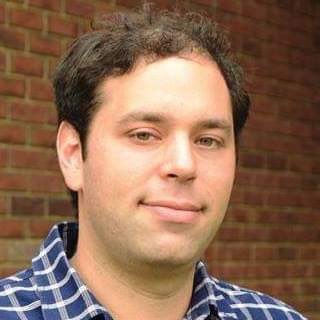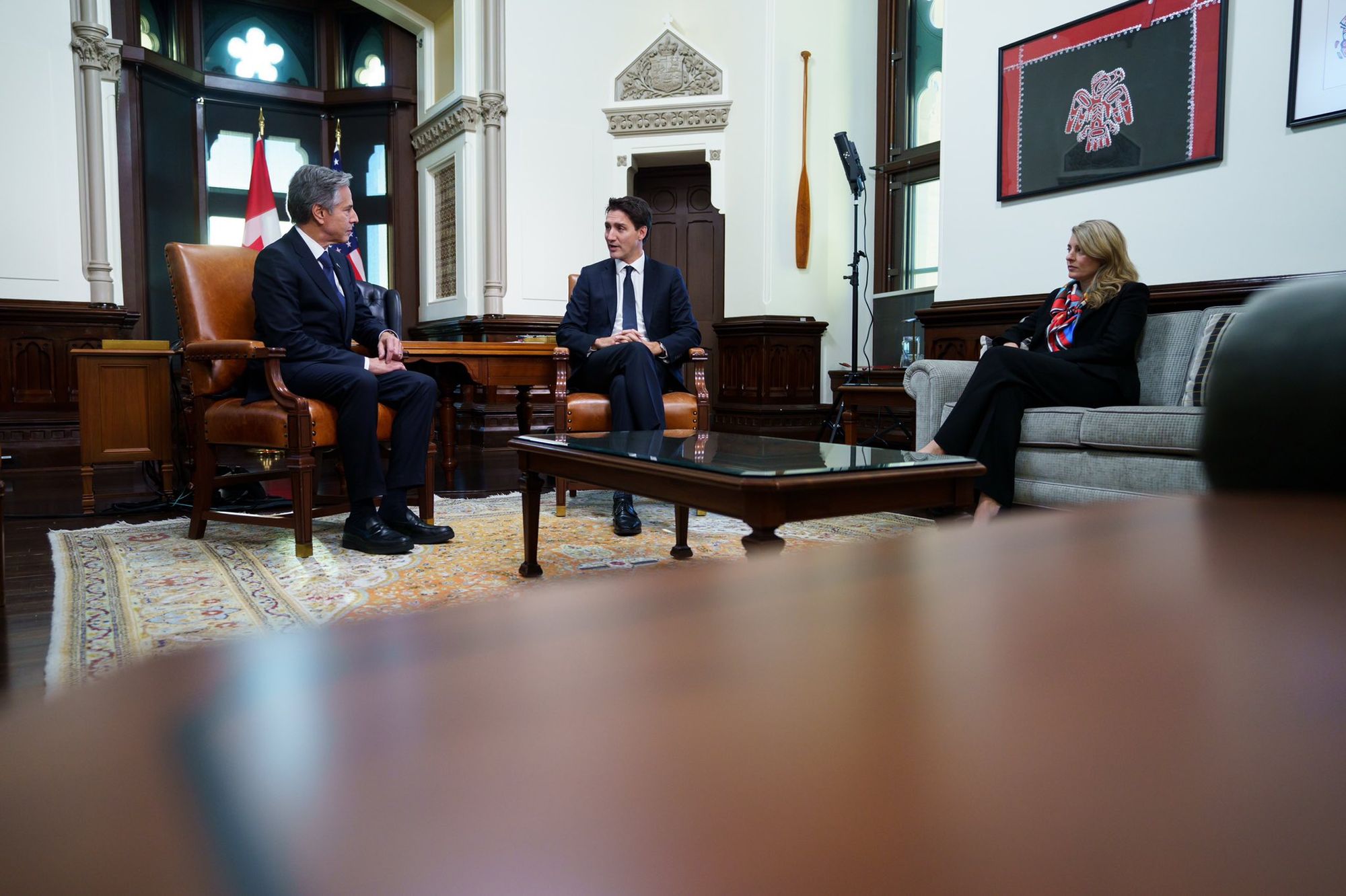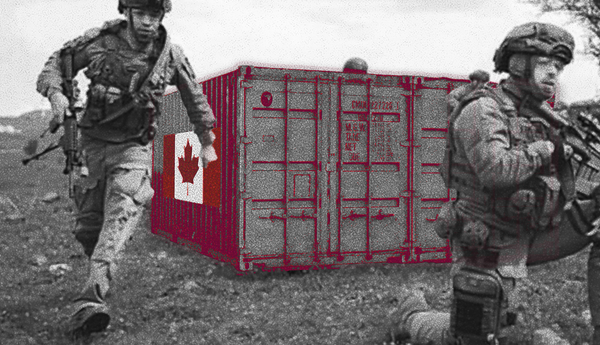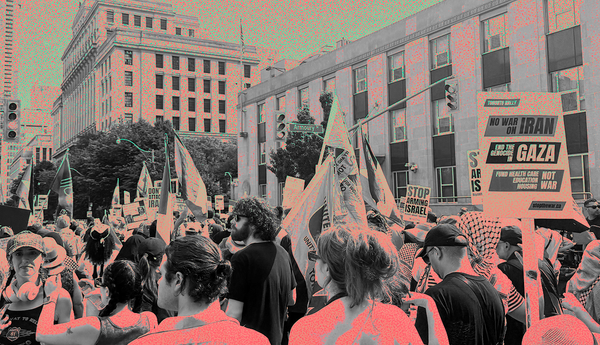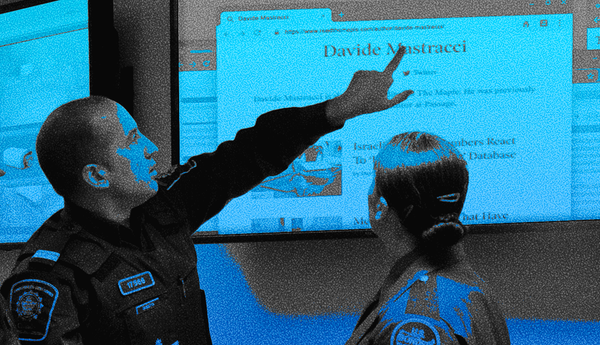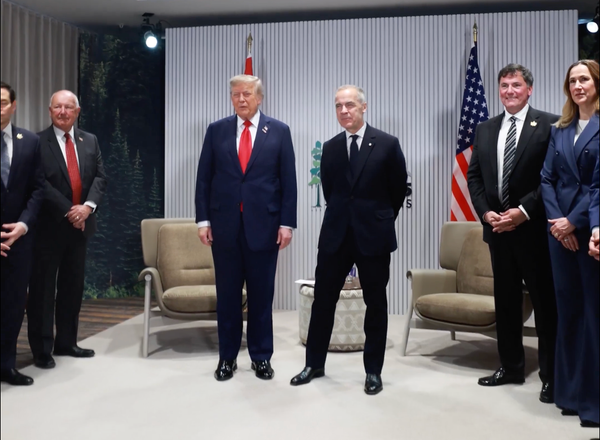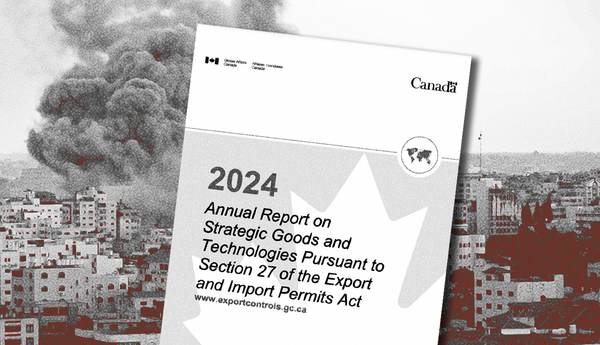On Oct. 26, Foreign Affairs Minister Melanie Joly and U.S. Secretary of State Antony Blinken dodged questions about what role Canada might play in organizing any foreign military intervention in Haiti. The next day, Global Affairs Canada (GAC) announced that Canada is “conducting an assessment mission in Haiti” aimed at “responding to the current humanitarian and security crisis” in that country.
Earlier this month, a joint statement from the governments of the U.S. and Canada announced that their air forces had shipped “security equipment, including tactical and armoured vehicles” to Port-au-Prince, Haiti’s capital.
The weapons were, according to the news release, sent to assist the Haitian National Police (PNH) “in their fight against criminal actors who are fomenting violence and disrupting the flow of critically needed humanitarian assistance, hindering efforts to halt the spread of cholera.”
In mid-September, armed gangs began blocking a major fuel terminal to protest the removal of fuel subsidies by Haitian President Ariel Henry, who was appointed after the 2021 assassination of former president Jovenel Moise. Henry has yet to contest an election, after postponing a vote scheduled for last November due to security concerns.
On Oct. 6, Henry asked foreign forces to provide military support for his government to restore order, as first reported in the Miami Herald.
In a unanimous Oct. 21 vote, the UN Security Council approved a resolution co-drafted by the U.S. and Mexico to sanction Jimmy “Barbecue” Cherizier, a former Haitian police officer who leads the G9 Family and Allies gang coalition, which is leading the fuel blockade.
But ordinary Haitians have also been out in the streets blocking roadways to protest Henry’s government, with widespread calls for him to resign.
Meanwhile, according to the UN Children’s Fund, there are, as of Oct. 22, 1,752 suspected cases of cholera in the country, with about half of those estimated to be in children under the age of 14. There have been 40 deaths as a result of the outbreak.
GAC won’t provide details
The Maple reached out to GAC to inquire which specific types of tactical and armoured vehicles were sent, which company produced them, how much they were purchased for, and when.
GAC spokesperson Sabrina Williams didn’t answer any specific questions.
“The Government of Canada remains committed to supporting the Haitian National Police’s work of protecting and serving the Haitian people,” Williams wrote, with a link to the joint U.S.-Canadian government statement. “As such, the Government of Canada employed RCAF assets to ensure the expedited and safe delivery of much-needed PNH-purchased vehicles and supplies.”
According to reporting from Evan Dyer at CBC News, the PNH previously had only one functioning armoured vehicle.
Dyer said that in addition to re-opening fuel stations, Haitian police “may have to” fight gangs in the impoverished neighbourhoods in which the gangs are based, like Cité Soleil.
“The new armoured vehicles provided by Canada are likely to play a prominent role in that kind of street fighting — which always involves a high risk of civilian casualties,” he wrote.
“While Canada hasn't placed formal conditions or caveats on the use of the vehicles, Ottawa wants them to be used with care and only when the situation demands it, a Canadian official told CBC News.”
Haiti’s history of foreign intervention
Jafrikayiti, aka Jean Saint-Vil, co-founded the Canada-Haiti Action Network in the wake of a 2004 coup which removed Haiti’s democratically elected president, Jean-Bertrand Aristide, from power for a second time with active Canadian support and participation.
In a recent appearance on The Maple’s North Untapped podcast, Jafrikayiti criticized a lack of in-depth Canadian media coverage focusing on the roots of the crisis in Haiti.
Colonial powers have had their guns set on Haiti since its population launched an unprecedented slave revolt in 1804, expelling the French forces of Napoleon Bonaparte from the island nation, which was previously known as Saint Domingue, Jafrikayiti explained.
Immediately after, France, Britain and the U.S. sanctioned Haiti to isolate it and began engaging in “gunboat diplomacy,” whereby those powers sent armadas with dozens of boats and thousands of soldiers to intimidate Haiti’s population and leaders.
The U.S. militarily occupied Haiti from 1915 until 1934 to “restore order” and “stability” — justifications that to many activists sound very similar to recent official statements from the Canadian and U.S. governments.
“The United States mimicked the segregation they had in their country,” Jafrikayiti said regarding the 19-year occupation of Haiti.
“In Canada, we tend to use the word white supremacy to associate it with fringe groups, like skinheads and the KKK — stuff like that,” he explained. “But the reality is the history of colonization in the Americas is rooted in white supremacy, and because of that, everything is viewed through that prism.”
The U.S. maintained its occupation by placing the descendants of French colonists, as well as other lighter-skinned people who came over from the Middle East, into positions of power. “That's the struggle that you're seeing in Haiti today,” said Jafrikayiti.
In 1957, Francois “Papa Doc” Duvalier took power with the support of the military, ruling until his death in 1971, when his son, Jean-Claude “Baby Doc” Duvalier took control.
Upon Baby Doc’s 2014 death, Reuters described him as “a portly poster-child for wanton misrule, failing to address the poverty and illiteracy of Haitians while his family and friends indulged in a luxurious lifestyle.”
A popular uprising sent Baby Doc into exile in France in 1986, with Haiti ruled by a series of generals until the 1990 election of Aristide, a leftist former parish priest, in Haiti’s first democratic vote.
Aristide was overthrown by a military coup in 1991, but was re-elected in 1999 and remained in power until his second overthrow in 2004, which U.S. and Canadian officials plotted in Meech Lake, Que., the year prior.
Since then, Haiti has gone through a series of food shortages, cholera outbreaks, protests, and a devastating 2010 earthquake, which killed approximately 220,000 people.
The Canada angle
Justin Podur, author of Haiti’s New Dictatorship: The Coup, the Earthquake and the UN Occupation, told The Maple that Canadian police forces have trained and accompanied their Haitian counterparts for years.
Similarly, Canadian cops played a “colonial oversight role over other aspects of the justice system, elections and other governmental functions,” he added.
Meanwhile, since the 2004 coup, Canadian companies that have operated in the country like SNC-Lavalin and Gildan Activewear have pushed for favourable labour laws, Podur said.
The scourge of gang violence is “absolutely an excuse” to promote further Western intervention in Haiti. “If you look at gang-related deaths in Haiti compared to other countries in the Caribbean or Central America, it's not even above average,” said Podur.
“The idea that Haiti needs an international intervention to deal with street gangs is ridiculous and racist, and completely rejected by Haitians.”
The politicization of gangs
George Washington University international affairs professor Robert Maguire told The Maple that Haiti has a “long history of paramilitary organizations that do the dirty work for politicians and business leaders.” This dates back to Papa Doc’s dictatorship, which utilized the “Tonton Macoutes” paramilitary unit, founded in 1959.
Maguire described these gangs as an “informal enforcement mechanism” for business and political elites to unleash against their perceived enemies.
Moise’s assassination last year created a “clear political vacuum,” with various factions fighting for control through their gangster auxiliaries, Maguire said.
He explained:
“A lot of the gangs are essentially composed of people who are seeking ways of supporting themselves and their families in a highly impoverished situation. These are not wealthy people. These are not people of any means, really. They work at the behest of people, who supply them with the ammunition, and do what those people want them to do.”
Despite reports of Haiti’s request for military intervention, Maguire said the Haitian government has “no legitimacy whatsoever.”
Henry was appointed at the behest of the Core Group, which is made up of the ambassadors of Germany, Brazil, Canada, Spain, the U.S., France and the European Union.
The problem, Maguire said, is that the international community is constantly asking what it can do to alleviate the situation in Haiti without taking the perspective of Haiti’s impoverished majority into account.
“International actors seem to have this knee jerk response to move toward a militaristic solution, one which supports the same power infrastructure that has exacerbated and fed off of the problems that Haiti’s had for decades,” he explained.
A lack of fuel due to the blockades has meant a lack of energy supply for water treatment plants, which is why cholera infections have skyrocketed, Maguire added.
However, given the history of international intervention in Haiti, Maguire said there needs to be a diplomatic solution based on the desires of Haitians themselves.
There is already one on the offering in the form of the Montana Accord, which was signed by the Commission for a Search to a Haitian Solution to the Crisis, composed of civil society, religious and political leaders, in the wake of Moise’s assassination.
The document calls for Henry to be replaced by a provisional government followed by elections.
In a statement on the federal NDP’s website, foreign affairs critic Heather McPherson called on the Trudeau government to support implementing the Montana Accord, use Canada’s position of influence within the Core Group to halt illegal weapons trafficking to Haiti, and increase humanitarian assistance to the country.
“While Haiti’s unelected leadership has asked the UN Security Council to discuss military intervention, we know that a militarized approach is neither sufficient nor sustainable to address the pressing needs faced by most Haitians,” McPherson wrote.
Foreshadowing future developments in the region
Podur said that since Haiti’s 1804 revolution, when liberated slaves kicked out the French, the country has been at the forefront of Latin American and Caribbean politics.
Aristide’s initial election in 1991 foreshadowed the left-wing “pink tide” across Latin America a decade later, beginning with the election of late Venezuelan president Hugo Chavez in 1999 and other leftist leaders in the region in the ensuing years.
Aristide’s overthrow in 2004 likewise presaged the overthrow, or attempted overthrow, of several pink tide governments, including those of Bolivia, Honduras and Venezuela.
“The reason it is hard to see [this trend] is because it is usually too many decades ahead to see the pattern,” said Podur.
As Haiti goes, so too does the rest of the region.
Jeremy Appel is a journalist based in Calgary, and his work has appeared in The Sprawl, CBC Calgary, Jacobin, Passage and the Forward. He also co-hosts the Forgotten Corner and Big Shiny Takes podcasts.
Go deeper
Here are a few stories from our archive that expand on today's story
Understanding Canada’s Counterinsurgent ‘Peacekeeping’
Since the end of the Cold War, Canada’s peacekeeping operations, although never particularly peaceful, have taken a more explicitly violent turn — especially across Africa and the Caribbean.
Podcast: Why Haitian Protesters Oppose Foreign Military Intervention
On last week's episode of The Maple's North Untapped podcast, we spoke to Jafrikayiti (aka Jean Saint-Vil), an activist and co-founder of the Canada-Haiti Action Network, about the reasons behind the current protests in Haiti against the U.S.-backed government, and why the protesters strongly oppose the government's request for foreign military intervention.
Top Maple story this week
Experts Hope Incoming B.C. Premier Eby Will Heed Disqualified Appadurai’s Bold Healthcare Proposals
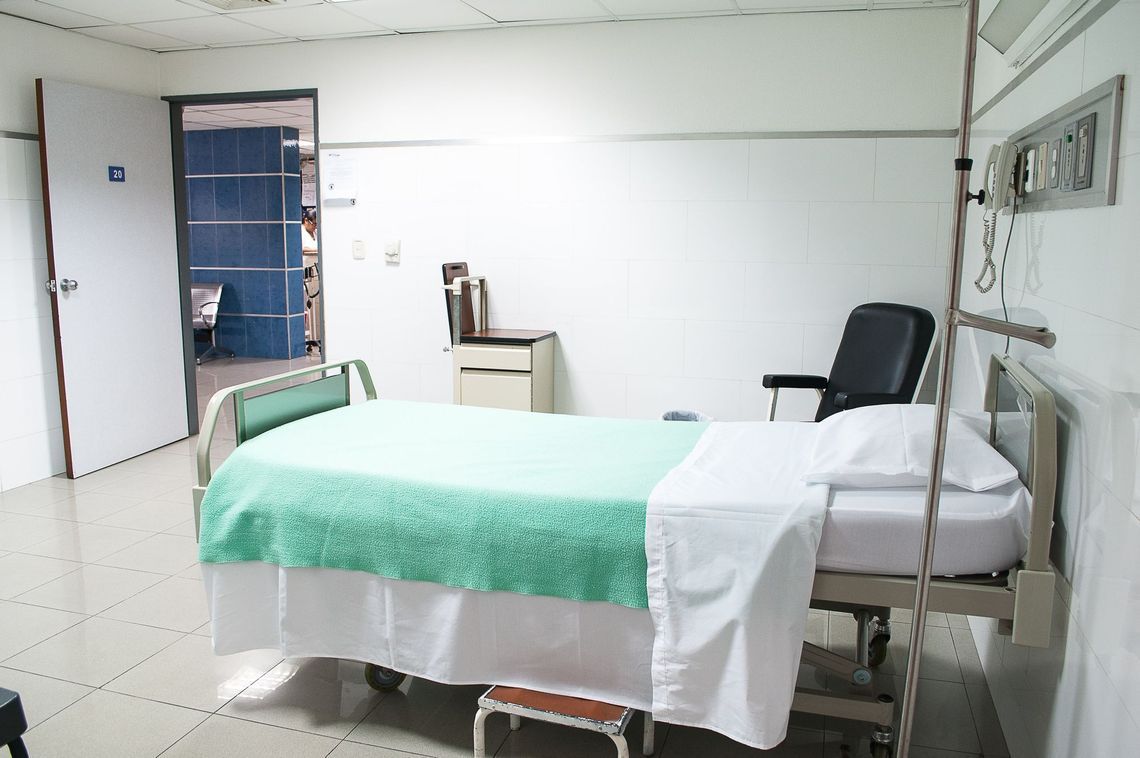
Disqualified B.C. NDP leadership hopeful Anjali Appadurai released a health care policy platform earlier this month that pledged to address privatization in the province’s health care system by strengthening the public sector.
Health policy researchers hope Appadurai’s proposals around addressing privatization, focusing on the social determinants of health and engaging communities in the provision of health care will be taken seriously by David Eby, who will be the next premier after assuming the B.C. NDP leadership by default.
Catch up on our latest stories
- Canada Propped Up Venezuelan Astroturf Group Linked to Crumbling ‘Interim Government,’ Note Confirms.
- B.C. NDP Disqualifies Anjali Appadurai Despite Members’ Objections.
- Canada’s Fossil Fuel Subsidies Surpass $15.6 Billion This Year: Report.

